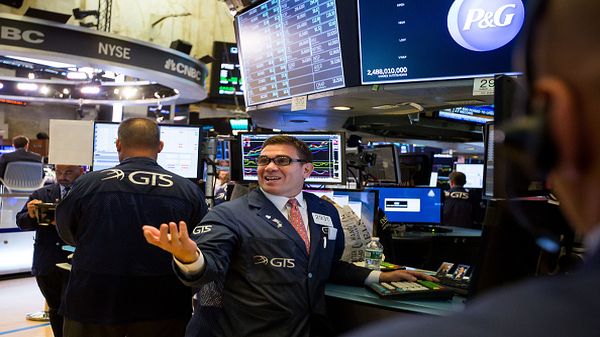
Stocks mostly fell on Thursday as tech shares added to steep losses seen in the previous session while global trade fears lingered.
The tech-heavy Nasdaq dropped 0.9 percent to 7,922.73 as Amazon and Apple fell 1.8 percent and 1.7 percent, respectively. The index is on track to fall 2.5 percent for the week and has posted three straight days of losses.
The S&P 500 declined 0.4 percent to close at 2,878.05 as tech fell 1 percent. Facebook shares also declined 2.8 percent on Thursday, while Alphabet dropped 1.3 percent.The Dow Jones Industrial Average eked out a slight gain, however, rising 20.88 points to 25,995.87.
Chipmakers were among the worst-performing tech stocks. Micron Technology dropped 10 percent, while Lam Research and Applied Materials fell 6.7 percent and 5.3 percent, respectively. These stocks fell after a Morgan Stanley analyst and an executive at KLA-Tencor issued demand warnings for the semiconductor space.
“Tech did get a head of itself recently,” said Jeff Kravetz, regional investment director at U.S. Bank Wealth Management. “Investors are a bit cautious right now given several factors,” including trade and emerging-market risk. So “the natural place to pull back from is tech.”
Tech shares are up more than 16 percent this year, outperforming the broader market. However, they are down more than 2 percent this week. On Wednesday, they fell 1.5 percent.
Officials from the U.S. and Canada worked late into the night on Wednesday, as both sides sought to secure a new trade agreement to replace the current North American Free Trade Agreement (NAFTA) pact, a deal they failed to secure by last Friday’s initial deadline. These extended talks are likely to continue in the coming days, and could potentially last weeks.
Meantime, the relationship between China and the States remains tense. Markets remain in wait-and-see mode after a report from Bloomberg last week revealed that the U.S. administration was on standby to inflict additional levies on $200 billion worth of Chinese goods as soon as this week.
China’s commerce ministry stated Thursday that Beijing would retaliate if Washington was to inflict new tariffs, Reuters reported. The deadline for comments on the proposed tariffs is at midnight.
President Donald Trump’s “trade tactics are more likely to slow the economy, certainly in the near term, because of damage done to capital spending plans,” said Steven Blitz, chief U.S. economist at TS Lombard. “The seemingly random aspect of his tactics, including the uncertainty of how long tariffs will be in place and their direct impact, will cause firms to pause before starting up capital projects – just when investment spending looked set to surge, aided by Trump’s tax cuts.”
The rising trade tensions, along with a stronger U.S. dollar and tighter monetary policy, have pressured emerging-market stocks recently. The iShares MSCI Emerging Markets ETF (EEM) briefly entered bear-market territory before closing slightly higher.
Private companies added 163,000 jobs last month, according to ADP and Moody’s Analytics. Economists polled by Reuters expected a gain of 190,000. The report comes ahead of the US. government’s nonfarm payrolls report, which is set for release Friday.
“The ADP data fell well short of expectations; however, the disappointing statistics mean very little for tomorrow’s Nonfarm Payrolls reading,” said Jeremy Klein, chief market strategist at FBN Securities, in a note. Klein noted the two reports have differed by an average of 57,000 in the past year and that weekly jobless claims remain near multi-decade lows.
“In short, the state of employment, which includes only moderate wage growth, will continue to keep a flame underneath the economy,” Klein said.

